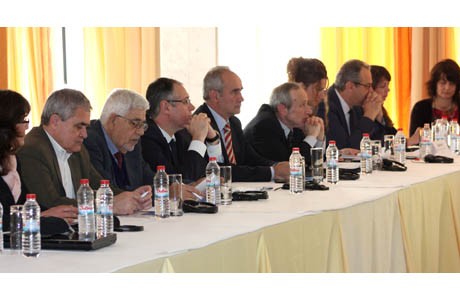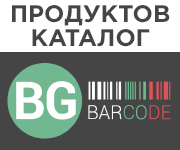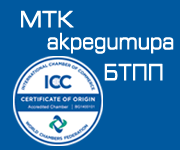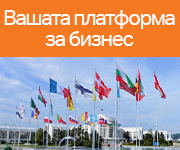Назад
Назад
Bulgarian, Serbian and Hungarian Chambers Of Commerce and Industry express their support for South Stream Pipeline
The Chambers of Commerce and Industry of Bulgaria, Serbia and Hungary gathered at a roundtable entitled “South Stream – What Will Bulgaria and Europe Gain” to discuss the pipeline and the opportunities and benefits it will bring for Bulgaria and Europe as a major energy development. The participants committed to work actively towards raising further awareness around the South Stream project as well as regional policy issues and a need for long-term forward planning that is required to invest in and deliver large scale energy infrastructure.
Representatives of the Bulgarian, Hungarian and Serbian Chambers of Commerce and Industry, the Hungary-Russian Committee, Natural Gas Europe and South Stream Bulgaria discussed different topics related to South Stream project and its impact on the region as a whole. Amongst others, the role of the local businesses in the project, options for cross-border cooperation, energy security, regulatory issues and the benefits of the natural gas as an environmentally friendly fossil fuel for the industry.
Experts agreed that there was a need for more active cross-border cooperation that would facilitate a dialogue between various authorities on a local and regional level, the business community and the people that would be directly affected by the pipeline construction.
Ivan Tabakov, Chairman of Varna Chamber of Commerce and Industry said, “the decision to cooperate and increase our activities aim to provide more information to the business community and the general public about the South Stream pipeline together with our partners is a good beginning of more in-depth cross-border cooperation in support of the business. The Bulgarian Chamber of Commerce and Industry is honored to host such an event.”
There was a shared opinion that the South Stream pipeline is a commercial project, and not a political one, with a key objective of increasing natural gas supplies to local economies and in the EU. The project will also offer long-term benefits for the Bulgarian economy hence why the involvement of business communities in the project. According to the initial prognosis the construction phase of the project will create about 5000 new jobs in Bulgaria and the direct investments will reach 3.5 billion EUR.
“We are aware of the difficult political situation in the region and hope that it will not affect projects in favor of the business. We believe that the benefits for the business and the EU citizens should be carefully considered. Priorities for the BCCI activities for 2009 -2014 is promoting transparency and informing the Bulgarian citizens on the progress of international negotiations, and activating the Bulgarian site for the realization of projects such as South Stream” stated Ivan Tabakov. “In addition The Bulgarian Chamber of Commerce is for a more efficient work by the execution of international projects, for more transparency in favor of the Bulgarian Business”.
Zeljko Sertic, President of the Serbian Chamber of Commerce and Industry, made the point that a new approach was needed. Sertic said building consensus between international organisations, between governments, between businesses, and between communities was key. He made the point that such an approach needed to be driven by business and business organisations. ”The focus should be on supporting major energy projects that will deliver significant economic growth and energy security”.
Sertic asserted that the Serbian Chamber of Commerce and Industry has begun work on the idea of a Balkan Energy Initiative, intended to promote dialogue between neighbouring countries and work as a coordinating organisation to improve policy development in the Balkans region.
He said, “In our view the Balkans Energy Initative would have an important role to play in supporting businesses of all sizes to benefit from investment in energy infrastructure. Chambers of Commerce, in their capacity of representing the best interests of business, are the natural starting place to begin this initiative, but it should also be open to a range of stakeholders, including individual businesses and civil society organisations. We have begun the process of building support for the idea, with a letter of intent, and we will discuss the proposal later in May in Vienna.”
Drew Leifheit, from Natural Gas Europe, the leading online information centre for natural gas and energy, supported the idea. He said that there needed to be greater coordination between the countries of the region if they are all going to benefit economically from infrastructure projects like South Stream. “Turkey is already beginning to propose itself as an alternative landfall for the pipeline, strengthening its position as an energy hub. Unless the countries of the Balkans act together, they will lose out.”
Igor Elkin, CEO of South Stream Bulgaria, said that planning for the pipeline is progressing. He welcomed the event, saying “this is an excellent opportunity for everyone involved to debate the key questions around the South Stream pipeline. We fully support the idea of increased dialogue between the Balkan states. Greater coordination on energy policy will help to strengthen investor certainty and ensure that we deliver the pipeline on time, to the benefit of businesses and communities.”
Congratulatory address by the President of the Bulgarian Chamber of Commerce and Industry, Tsvetan Simeonov, to the participants in the roundtable: HERE
23.04.2014
Още новини:
-
16-04-2014

 1 USD =
1 USD =  1 GBP =
1 GBP =  1 CHF =
1 CHF =  ISO 9001:2015
ISO 9001:2015































